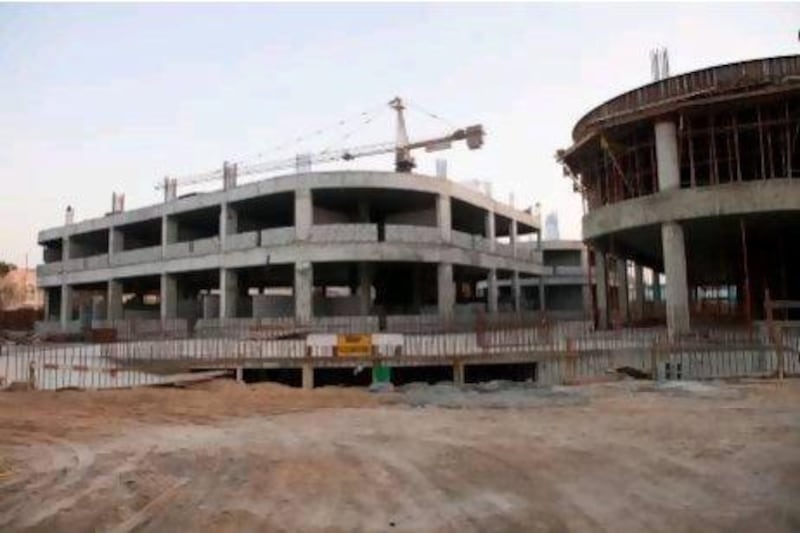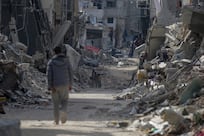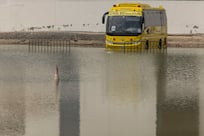DUBAI // A desperately needed centre for children with autism is only half-built, more than four years after it was due to open.
Now the organisation building it is calling for Dh25 million in donations - of cash, building supplies and fixtures - to enable it to complete the job and alleviate the shortage of special-needs education.
Work on the Dubai Autism Centre's new premises began in 2007 on land in Garhoud that was donated by Sheikh Mohammed bin Rashid, Vice President and the Ruler of Dubai. Sheikh Mohammed also provided substantial funding.
The building was due to be completed in 2008 but work slipped years behind schedule because of difficulties in raising funds.
The existing centre, near 2nd of December Street, has room for only 44 children and relies entirely on donations, not just for the new building but for all of its activities.
"The new building will be able to absorb 250 children," Hayula Mourad, the centre's head of communications, said recently. "Currently we have more than 270 on the waiting list.
"We will be able to do two sessions - a morning session and an afternoon programme - so as to accommodate as many children as we can."
Autism is a developmental disorder that affects children's social and communication skills. One of every 110 children worldwide is affected.
The centre has produced a book for potential donors, which includes a list of a wide range of building materials needed.
They include building blocks, roofing tiles, wash basins, doors, air-conditioning units and paint.
The book, entitled Invest in the Future of Children Diagnosed with Autism, contains a site plan submitted to Dubai Municipality that lists the "owner of title" as the Dubai Autism Centre. The completion date for building is given as August 16, 2008 "as per contract".
But a look at the site showed a bare concrete shell of the large two-storey building, with a yellow crane rising above it.
Steel reinforcing bars jutted out from the tops of support columns. There was little sign of activity, although at least one workman was on the site.
The centre's long waiting list highlights the acute shortage of such facilities in the UAE.
A special-needs school in Abu Dhabi closed last February and some of the parents whose children went there have still not been able to find other places.
Connie Tjenderesa, whose daughter Clivenne, 8, attended the school, has only just managed to find a place for her.
"We don't have any options here in Abu Dhabi, it's very frustrating," she said. "Clivenne was not receiving any education and it was very worrying. I know two friends of hers who still cannot get into a school."
A Dubai father who has a nine-year-old daughter with special needs said: "If there are parents with children with needs and they're still waiting for services then something should be done to provide them.
"There should be some sort of alternative support rather than trying to wait for a centre to come about. There are so many schools here in Dubai, privately operated and well funded, that could be providing these necessary services.
"I don't think this should be the sole responsibility of one centre."
He said the lack of facilities was widespread across the region.
"There are so many expats I know who have either left the region or turned down jobs in the region because they couldn't find the proper educational resources for their children," the father said.
Dubai Autism Centre declined to answer questions about the new building.






